Podcast: Play in new window | Download | Embed
Subscribe Apple Podcasts | Spotify | Android | iHeartRadio | Blubrry | Email | TuneIn | Deezer | RSS
As Bolivia’s new government under Luis Arce prepares to prosecute the people behind the 2019 coup against Evo Morales, prominent US institutions such as Human Rights Watch, Washington Post, and the State Department urge Arce not to move against them. Ollie Vargas, a journalist, and analyst based in Bolivia says the prosecution is essential at a time when coups are back in vogue in Latin America.
Greg Wilpert
Welcome to theAnalysis, I’m Greg Wilpert. Today, we’ll revisit the situation in Bolivia, where conditions remain tense about eight months since the leftist Luis Arce became president.
Prosecutors are going after the previous coup-government of Jeanine Áñez, who had ousted left-wing President Evo Morales in November 2019 and unleashed a wave of violence against Morales supporters, killing dozens and injuring and arresting hundreds. Last March, police arrested former coup-President Jeanine Áñez herself, together with many of her ministers and leaders of the national police and the military who are being accused of human rights abuses during her government.
Meanwhile, last week, the online publication The Intercept revealed details of a second coup plot that was supposed to have prevented Luis Arce from assuming the presidency last November. In the end, nothing came of that plot and Arce took office uneventfully. Joining me now to discuss these and other recent developments in Bolivia is Ollie Vargas. He’s a journalist with Kawsachun News and is currently based in Cochabamba, Bolivia. Thanks for being here, Ollie.
Ollie Vargas
Thanks for having me on and it’s great to be able to discuss these issues. I’m glad Bolivia hasn’t fallen out of our public conversation because what’s going on now, the process of getting justice for the coup, getting justice for the abuses, for the torture, for the massacres of last year is an incredibly important process for the whole region. I think this can send a message throughout Latin America about the fact that if coups such as these pop up again, as they have, and as they are threatening to currently, then there will be consequences. There will be justice brought down on those responsible. So the process of uncovering what really happened and enacting justice is a historical moment for the region.
Greg Wilpert
I wanted to ask you to get into a little bit more detail about that. The Organization of American States, Human Rights Watch, and The Washington Post have all actually condemned the Luis Arce government’s actions, or particularly the prosecutors, saying that they’re basically overstepping their boundaries and that they don’t have a case. So tell us, what are Jeanine Áñez and her government officials being accused of and what do you think this means for Bolivia at the moment?
Ollie Vargas
Yeah, I think it’s surprising to see the way that organizations such as Human Rights Watch, these US-based NGOs, the US government itself through its secretary of state, Antony Blinken, condemning the Bolivian government particularly for the arrest of Jeanine Áñez, who was the de facto president last year. It’s disappointing. Are they suggesting that there should be impunity for what happened last year?
Bolivia last year went through an incredibly serious political crisis, which wasn’t a case of a conflict between two sides. What took place was that one side seized power through non-democratic means, not at the ballot box, and a right-wing minority governed the country for almost a year without having ever won a vote. And within 10 days of taking power in November 2019, they launched two massacres. They killed numerous other protesters in different parts of the country. There were military helicopters flying 40 to 50 meters over the ground, shooting indiscriminately at the population. There were hundreds of people with serious life-changing injuries. Many died not long after the repressions took place due to the injuries that they sustained that day. And after those massacres, there was a concerted campaign, a very organized campaign of political persecution against anyone and everyone who identified with Evo Morales’ party, the Movement Toward Socialism, a party that since 2005 has won every single general election. So this was a campaign of political persecution against the majority of Bolivians.
Any union leaders or indigenous leaders were either forced into exile or forced into hiding. In the case of the union leader of the department of Santa Cruz for the Central Obrera Boliviana, the main labor union confederation, he disappeared for a year. He had to go into hiding, people threatened to burn down his home, right-wing gangs affiliated with the Áñez government were looting the union offices. Others lived the entire year with charges hanging over them. Here in Cochabamba, one of the most prominent union leaders, coca-growing union leaders, Andrónico Rodríguez, by the time the Áñez government fell, he had almost 20 different invented charges hanging over him, including for things such as terrorism and sedition for, for example, calling Jeanine Áñez a coup president. That was considered terrorism and sedition. These are the sorts of charges that were sprayed at thousands of people last year. Over 500 people were detained on political charges over the last year. So how can you say that there cannot be a process of justice, that crimes were not committed?
And I think the charges that are being presented against Jeanine Áñez at the moment are very straightforward charges, charges that are presented in, for example, the United States. They center on three main things. The main one is her participation in the coup d’etat in November 2019. When Morales was forced to resign by the military, there was not a constitutional succession that took place. And therefore, conspiring to break the constitutional order is a crime in every single country with a government, with a functioning state. And in fact, at the moment, there are hundreds of people being charged with these sorts of crimes in the United States for their assault on the capital building. Another of the charges was for the rampant corruption there was last year. At the height of the pandemic, there was a very serious case of embezzlement of funds destined for the purchase of covid-19 ventilators to the tune of millions.
So all of these things are not political charges. They are things that are considered crimes in every single country all around the world. And to say that there should be impunity for these acts sets a very dangerous precedent for the region because then future Jeanine Áñez wannabes, which I think we’re seeing right now in Peru, will think that they can do this with impunity as well. If we can bring justice against all of the people who broke the constitutional order in Bolivia, the whole region will be a much more democratic environment.
Greg Wilpert
A number of Áñez sympathizers and former government officials, apparently led by Áñez’s Defense Minister, Luis Fernando López, discussed a plan for members of the military, the police, and mercenaries that were based in the U.S. to try to overthrow the government before Arce could take office (in order to prevent him from taking office, obviously). The Internet apparently has the phone recordings and emails that substantiate this plan, but the plan was never actually executed. Now, has this revelation been recounted? Has it been made public in Bolivia? And if so, what does it say about the stability or instability of the Arce government, assuming that most of this is probably true?
Ollie Vargas
After a year of Jeanine Áñez in power and all of the persecution that I outlined just now, despite all of the repression, all the attempts to wipe out the Movement Towards Socialism as a political force, the first opportunity the Bolivians had to express themselves politically at the ballot box in October 2020, the Movement Towards Socialism won with a landslide. They won with 55 percent, up against around 28 percent for the second place pro-coup candidate, Carlos Mesa. So there is an overwhelming mandate to govern. There was a small gap, of course, as in most countries, between the moment of the day of an election and the day when the new government takes power. That was a period of about a couple of months in Bolivia. And in that time, the defense minister, Fernando Lopez, who was one of the people responsible for the massacres that took place in 2019, suggested enacting essentially a self-coup. That is to say, launching a second coup with his own government to establish essentially a junta and to stop Luis Arce from taking power. And part of this plan was to hire hundreds of mercenaries from the United States to come in and work with a tiny number of elite military units to sort of take control of key state institutions. And then on the streets, they would have paramilitary fascist gangs that were activated in 2019 to fight the battle on the streets. These groups, such as La Resistencia and Unión Juvenil Cruceñista, in 2019 were the foot soldiers of the anti Evo Morales protests, people who unleashed extraordinary violence, particularly against indigenous people.
So that was the plan and according to the conversations that were had, there were a number of government ministers who wanted to launch this, to enact this. However, the military itself was skeptical that this was a credible plan. And eventually, it came to nothing. Fernando Lopez escaped Bolivia to Brazil the day Luis Arce took power in November, where he is currently living today and under the protection of the Bolsonaro government in Brazil.
So, yeah, I think this definitely sent shockwaves through Bolivia. This was another reason for people to see that what took place in Bolivia was a coup, that these are people who did not take power through democratic means, and they were trying to hold onto it through non-democratic means. And as soon as people heard the details of what was planned, people immediately knew that it was true. This is absolutely in character for figures such as Fernando Lopez, Arturo Murillo, Jeanine Áñez, and the way that they governed. They governed as a tiny minority party that never even reached the heights of becoming the second-largest opposition party. But somehow they got to govern the country for a year, almost without any political allies. And by the end, Jeanine Áñez left power with about seven or eight percent approval ratings. Today, everyone who supported the coup and was with her, in the beginning, pretends that they weren’t. There was very little social base on the streets. Certainly, none that was mobilizing by the end. So they were in a very precarious position and the only way they could govern was as a tiny minority terrorizing the majority. And this is what the plan revealed.
Greg Wilpert
Now, President Luis Arce, as we mentioned, represents the Movement Toward Socialism, the MAS, and he used to be Finance Minister under Evo Morales. And he recently was able to celebrate a success of sorts. Despite all of these problems that we’re talking about, he was able to celebrate a success with the March 7th regional elections. Talk about the results of the regional elections and what it means for Arce and for the political situation in Bolivia at the moment.
Ollie Vargas
In Bolivia, you always have the local elections for the governorships and municipal positions about two or three months after the general elections. I think it’s a funny system, to have it so soon after. I think you should have it either at the same time or perhaps as a midterm sort of thing because when you have it a few months after, you get all kinds of strange political distortions and I think that’s what we saw.
It was a mixed bag, in reality, for the Movement Towards Socialism. In a lot of places they won big and won outright. They won in Potosí, in Oruro, in Cochabamba with a crushing majority. But there are a number of local factors that affected the result. And I think international analysts would look at that and try and draw wider lessons. For example, the city of El Alto is, I would say, Latin America’s primary revolutionary city. It’s been the place from which successive neoliberal governments in Bolivia have been overthrown. And of course, it has been a bastion of the Movement Towards Socialism. In 2020, they won with over 70 percent of the vote there. But there was a very local dispute that was had a couple of months prior. There, a very high-profile figure, Eva Copa, had a sort of personal falling out with other sections of the party. So she ran on her own platform and then was able to win. And as someone whose family lives in El Alto, I know that there’s always these kinds of local disputes and conflicts. But it was quite annoying to see various international media outlets writing articles about how “the city of El Alto has turned its back on the Movement Towards Socialism. There’s a split within the ranks of the party.” This is not something that reflects reality. This is, in fact, something that happens almost every local election. It happened at the last local elections. And that’s because various places in Bolivia have various local factors.
So I wouldn’t read too much into the local elections that took place in Bolivia. I think Bolivians as a whole are really rebellious. Bolivians are rebels. And that’s partly why Áñez was unable to govern and the Movement Towards Socialism has been able to always maintain that energy behind it. That doesn’t mean that within itself there aren’t all kinds of conflicts, all kinds of internal disputes, people demanding their certain positions within the state apparatus. And it tells you a lot about the character of the Movement Towards Socialism in government of the Bolivian state because the Movement Towards Socialism is not simply some progressive party or left-wing party that takes power and enacts a number of progressive policies. The Movement Towards Socialism is a coalition of social movements. That makes an incredibly powerful movement. It also means that once you take power, the Movement Towards Socialism creates an environment where different movements, groups, workers’ groups, indigenous groups can participate. And that is, of course, very democratic. It opens up institutions of the state to social movements. But the contradiction in there is that some people want this, other people want that. And that dynamic can cause a clash regarding which movements will have a responsibility for what things. There’s always a fight over who’s going to be the Minister of Agricultural Development, for example. The Movement Towards Socialism is overwhelmingly supported by indigenous rural voters and social movements. But there’s social movements in the Amazon, there’s social movements in the Andes, in the valleys. Where is the Minister of Agriculture going to come from? Which social movement is he going to come from? And everyone wants to put their own person. It’s one of the problems, you could say, but I think it’s one of the growing pains of building a participatory state.
Greg Wilpert
As you mentioned, Arce won with a very solid majority, 55 percent of the vote. And he basically promised to undo the coup government’s right-wing policies, which were quite numerous given that it was only in office for a year, and then also to continue Evo Morales’ legacy. But what concretely has he been able to do in the eight months or so that he has been in office so far?
Ollie Vargas
Luis Arce was the Economy Minister under Evo Morales and he’s an economist. He studied economics both in Bolivia and in the U.K. His masters is from Warwick University. He’s a very advanced economist. And he was the brains behind the socioeconomic model built under Evo Morales’ government, which is based around the nationalization of natural resources and having the state as an entrepreneur, as a force within the economy, generating revenues that can be brought into the state and then spent on things like infrastructure, social programs, et cetera.
That model was completely destroyed last year within a couple of months because what happened after the coup was that the huge network of state industries that existed in Bolivia, that formed the largest and most important sections of the economy, were closed down. All with the exception of the gas industry. Just near here where I’m sitting, there’s a giant plant producing fertilizer, not only for the national market but for export. And that was built by Evo Morales’ government. In fact, it was launched in the last year before the coup. The coup government, Áñez simply closed it down. They closed the factory gates and fired all the workers. And of course, the logic is that the economy should be driven by the free market. You shouldn’t have the state as a leading force within it. Therefore, we have to shrink the size of the state and allow the invisible hand of the market, or how the people characterize it, to work its magic.
The reality of what happened was that with the closure of all these state industries and development projects there was just mass unemployment. Unemployment more than tripled within the first few months. The poverty was just evident throughout the streets. It was a really, really dire economic situation. And all of this was before the pandemic. So by the end of Áñez’s rule, she would say, “Well, of course, there was an economic crisis. We were facing an unprecedented covid crisis.” Which, of course, is true. The pandemic destroyed economies everywhere in the world. But this economic crisis started before with the paralyzation of all this. Another example was the lithium industry. In the salt flats of Uyuni, Evo Morales built two processing plants for potassium chloride and was starting to be able to build batteries and things like this. Again just one day to the next, the factory gets closed down. It seems like madness. It seems like deliberate economic vandalism. And that’s what it was essentially with the state retreating from its role within the economy.
So now the number one, absolute number one task of Luis Arce’s government is rebuilding the economy and returning Bolivia to the economic growth it had under Evo Morales. And I think there’s been some really interesting things going on. Already, Bolivia in the first quarter had a growth of 5.5 percent of GDP. The first sign of growth in over a year. So that’s incredibly positive. Unemployment is down by four percent, from eleven percent to seven percent. And the figures are continuing to fall. And partly it’s driven precisely because Luis Arce is reactivating all of the projects that Jeanine Áñez closed. These are projects that he himself built with Evo Morales and that he’s now launching again. So the factory I talked about producing fertilizer, they’re already starting to open that. In the next couple of months, it should be at full capacity once again. Also the lithium, of course, is set to be reopened. A number of infrastructure projects, building the dual carriageway, the highway between Cochabamba and Santa Cruz that was completely paralyzed last year is now back on. All of these big infrastructure projects that were frozen due to neoliberal reforms are now being turned on again.
So the effect of doing that is to reignite the economy in a really important way. This, of course, is going to be a slow process. Building the highways that were trashed last year is going to take a year, two years, three years, perhaps, but it’s something that has started at least. And people are starting to notice the differences. The economy is starting to reopen again.
Greg Wilpert
One last question. When Luis Arce was running for president, everybody was claiming that he would just be Evo Morales’ puppet. And Luis Arce, of course, tried to maintain his independence when he was running. But clearly, Evo Morales is back in Bolivia. Apparently, he played a bit of a role in the regional elections. What is his role, more largely speaking, in Bolivia at the moment?
Ollie Vargas
Yeah, this is a really, really important issue, because Evo Morales, not just for Bolivians, but for social movements, indigenous movements across Latin America is more than just a transitory president that can come in and come out. He represents a turning point in Bolivian history and a leadership that was lacking before he burst onto the political scene. A deep leadership, a very deep level. And I remember during the election campaign, there was, on the one hand, people saying, “Arce is just a puppet of Morales.” And there was other wishful thinking from some mainstream media, foreign correspondents saying, “Well, hopefully, Arce will be like Lenín Moreno in Ecuador. He’s not like Morales. Luis Arce is a middle-class person from the city, from La Paz, with graduate studies. And maybe he’s now going to be a moderate, a Lenín Moreno type figure and undo the radicalism of Evo Morales’ period.” That has not happened. Luis Arce is from a middle-class background. He didn’t rise up through the ranks of the social movements like Evo Morales did. But he’s very committed ideologically to the project. He was the architect of the economic side of the project of the last 14 years under Evo Morales. So he’s deeply committed and he, just yesterday, was in Venezuela embracing Nicolas Maduro, saluting the Cuban revolution. And today the headlines in the Bolivian papers were saying “Luis Arce is cozying up to the Venezuelan government, etc.”
So we can see that the betrayal that people thought was going to happen has not materialized. And I think the role of Evo in this is incredibly important. I think a lot of ex-presidents dedicate themselves to becoming businessmen, enriching themselves. Evo Morales’ role now is a political leader of the Movement Towards Socialism. He is the president of the Movement Towards Socialism as a party. He’s the president of the Six Federations of Tropical Cochabamba, the coca growers union that he led. And that’s the most important social movement in the country. It has the most control over the party. And Evo Morales is building a number of international projects. He launched the organization, RUNASUR, which is due to be launched. And that is an alliance of social movements in South America, primarily indigenous social movements. And he has become, essentially, an international leader, but not at a state level, not as a politician, but as a leader of people, as a leader of movements, of workers, of Campesinos. So I think that’s the road he’s going to take, of having a sort of moral leadership, a political leadership without the trappings of the state bureaucracy that he had before. And of course, his relationship with the state is very fluid. He has meetings with Luis Arce very regularly. But his role is primarily at the rank and file of the social movements.
Greg Wilpert
OK, we’re going to leave it there for now. I was speaking to Ollie Vargas, journalist with Kawsachun News based in Cochabamba, Bolivia. We’ll provide a link also to your website so people can find it in the description. Thanks again Ollie for having joined me today.
Ollie Vargas
Thank you.
Greg Wilpert
And thanks to our viewers and listeners for joining theAnalysis. Please don’t forget to subscribe to our YouTube channel and to donate at the website, theAnalysis.news, so we can continue providing programming such as this.

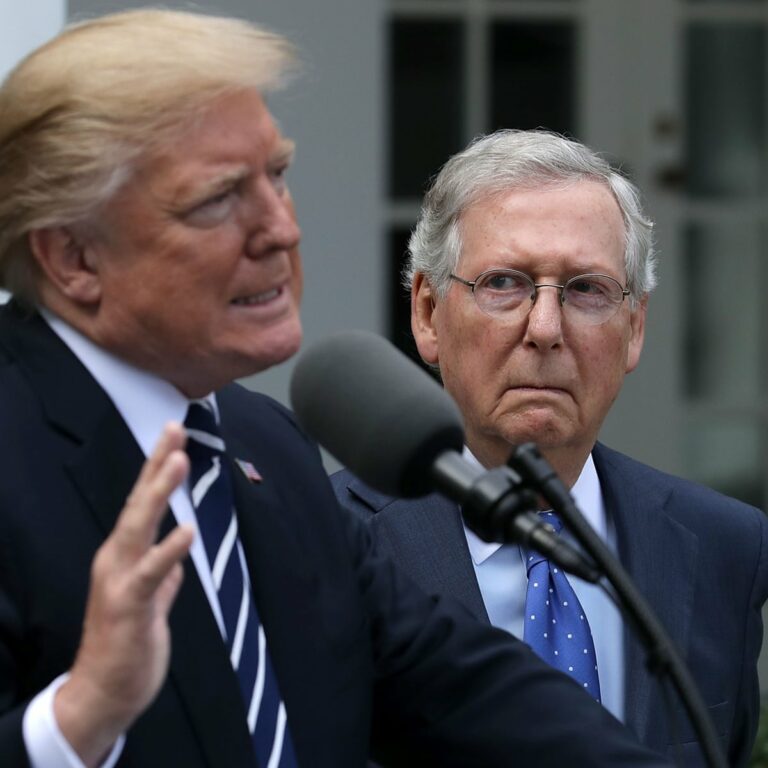
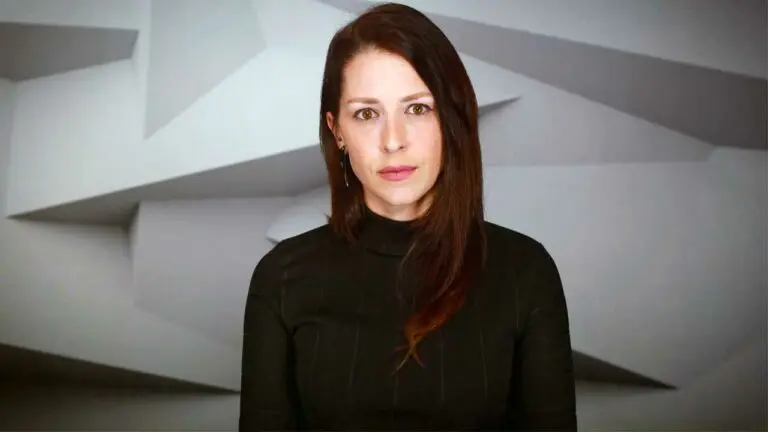

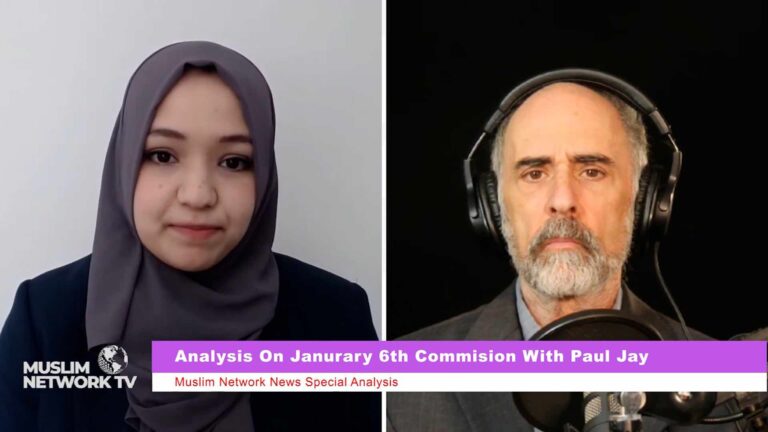
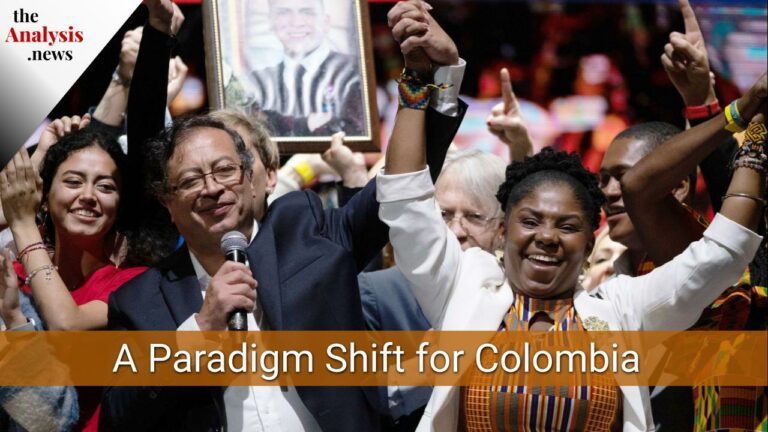
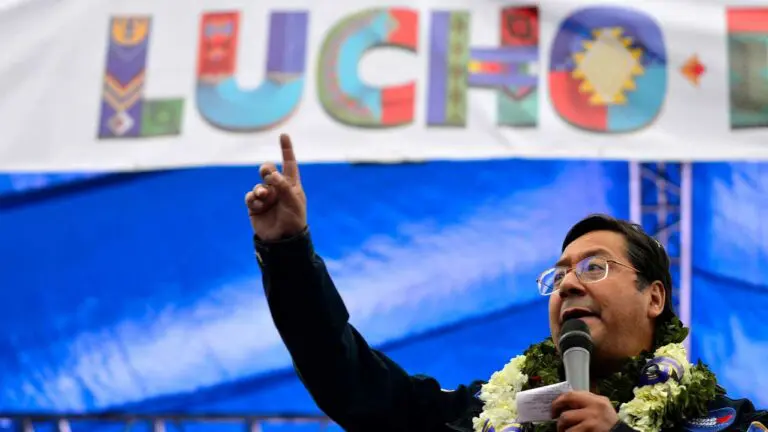
I hope the current goverment prosecutes the coup plotters and Christian fascists to the fullest extent of the law, and purges them from the judiciary, army and police force and Human Rights Fraud and other Western orientated NGOs and others demanding this not happen, prove what chumps and enforcers they are for the powers that be. Best of luck to MAS and the people power movements behind them in bringing to justice these crooks.
Such Nice People
When I served as part of NATO forces in Germany during the 1950s, just before Germany regained its sovereignty after WW2, I wondered how such nice people could have hidden from themselves what their government was doing during the 1930s and 40s, when Germany attempted to dominate Europe and the world.
Now, many decades later, I see what our government does, globally, to the people of other countries that exercise their independence of the US effort at world domination. I do have to make a little effort to learn what our Presidents and congress do, but not a great effort to get past the US media’s propaganda.
What I notice is few people and few journalists outside the mainstream media wonder, as I did in the 1950s, how such nice people as Americans seem to be, can fail to know the crimes our leaders commit against humanity through economic sanctions and the war crimes they commit by invasions, bombings, drones, proxy militias and dictatorships!
People like Kissinger, Rumsfeld, Clinton, Bush I & II, Obama, Trump, Biden and many others are held up to scorn by our anti-war left, but they never ask, how can the American people claim they didn’t and don’t know, as the nice Germans I met in the 1950s claimed?
Great article. Here is a Human Rights Watch statement alluded to here: Bolivia Should End Revenge Justice. Refers to the long refuted OAS election irregularity charges – as if they were anything but a tool to promote the coup. Nobody else does any more, they’re just swept under the rug and forgotten as “mistakes have been made”. But Human Rights Watch has no shame.
I await HRW’s report defending historical victims of “revenge (in)justice”:
Francisco Franco was not responsible for the rebellion and overthrow of the Spanish Republic.
Benito Mussolini was not responsible for the March on Rome – he was forced against his will to be Il Duce!
Hermann Goering was false imprisoned at Nuremburg, for his führer, Adolf Hitler, only wanted a “Springtime for Hitler in Germany”
Lot’s of details about the political power structure, but, a yawning chasm of the US’s brutal power of nearly 50-60 years exacted against millions there along with their home-grown politicians. Instead, the US has always greatly favored the very wealthy there while trying to destroy civilian society.
Interview someone who is more mature and WILLING to reveal who the real culprits have been in that nation.